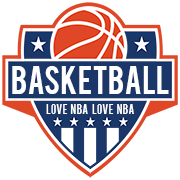
[Slater] Source: The Warriors are hiring Jon Phelps into their front office as their cap strategist and team counsel. He’s been with the Pistons organization for about a decade. Phelps fills an important vacancy left by Onsi Saleh, who left for a high-ranking position in Atlanta.
by NokCha_



5 Comments
It’s always good when the Warriors poach talent from one of the powerhouse teams in the NBA.
Pistons haven’t needed to worry about the cap in years. This man had the cushiest job in the league
In my quest, for curiosity’s sake, to see if I could figure out what about Jon Phelps’ resume made him alluring enough for Lacob to hire him given the franchise he’s been with isn’t exactly a beacon of ingenuity in the cap management space or anything given their position in the standings for years (ie they haven’t exactly had to cleverly find ways to compete while managing a lack of cap space and/or do so while creating cap space, etc.), I learned that Phelps has been a judge for the Tulane Professional Basketball Negotiation Competition for the last few years. Turns out this competition is tantamount to NBA front office cap whiz’s Davos. The Athletic published an [article](https://www.nytimes.com/athletic/4269908/2023/03/28/tulane-law-conference-nba-salary-cap/?source=user_shared_article) last year about this annual gathering and it was pretty interesting:
> Over the last half-decade, what one attendee called the league’s “shadow figures” have come together just a few miles from the French Quarter for an annual gathering of the NBA’s salary-cap experts for its own convention of sorts. While NBA Summer League pulls the whole sport to Las Vegas every year and the MIT Sloan Sports Analytics Conference has become a gathering place in Boston for analytics folks, the Tulane Law competition has become a place to be for some of the NBA’s most informed cap strategists, a spot where like-minds can flex about their knowledge of the 15 percent rule in structuring incentives and catch up. It has grown exponentially in its six years of existence.
>
> Every year, schools from around the country, in teams of one to three students, argue against one another over prompts devised in tandem by Tulane Law students and NBA front-office staffers, with one school representing the team and the other playing the role of the agent. The problems test competitors’ knowledge of the cap, its rosters and the CBA and its penumbras. The problems are chosen, so they can be especially knotty. The negotiations presage the same kind of issues NBA teams and agents will run into in the months to come.
>
> This year [2023], schools negotiated over the size and length of contract extensions for Minnesota Timberwolves forward Jaden McDaniels, Boston Celtics forward Grant Williams and New York Knicks forward Josh Hart. The championship round asked four finalists to figure out an extension for Brooklyn Nets guard Spencer Dinwiddie. Last February, teams debated the kind of deal Jalen Brunson would land minutes into free agency, with the Dallas Mavericks and Knicks pitted against each other — with the final numbers just as contentious as the actual deal Brunson struck with the Knicks. Students use previous contracts as comparisons and jostle over likely and unlikely incentives as sweeteners, all in under 45 minutes.
>
> All the while, NBA team executives and agents sat and watched as judges. When the negotiations were done, they offered their feedback and critiques and opened themselves up to questions about their jobs or their approach to similar situations they have experienced. It’s not uncommon for executives to sit in on negotiations involving their own future problems. During the final round, Nets and Mavericks executives sat in the audience and asked questions — Dallas had just traded Dinwiddie to Brooklyn weeks earlier.
This was the Agent role’s problem scenario in a Collin Sexton contract negotiation round they did at the 2022 conference, which I just find fascinating:
*You represent Collin Sexton and are entering into discussions with the Cleveland Cavaliers to negotiate a new contract. It is July 7th, and we are a few days into Free Agency.*
– Collin is a Restricted Free Agent (RFA) after failing to reach an Extension before the 21-22 season. Further complicating matters, Cleveland traded for Caris LeVert, and have not been transparent about Collin’s future with the team.
– Despite being confident that Collin would have a robust market, you have had little to no traction on securing him an Offer Sheet.
– Even worse, the major Restricted Free Agents have already come off of the board, and you do not have a team lined up to give Collin an Offer Sheet. Therefore, you would like to work with Cleveland to bring him back.
– You understand that Cleveland has the leverage and may try to include team friendly terms.
Anyway, I found this all to be pretty interesting and figured I’d share.
Atlanta is poaching everyone they can out of the Warriors organization.
How much does someone like this make?